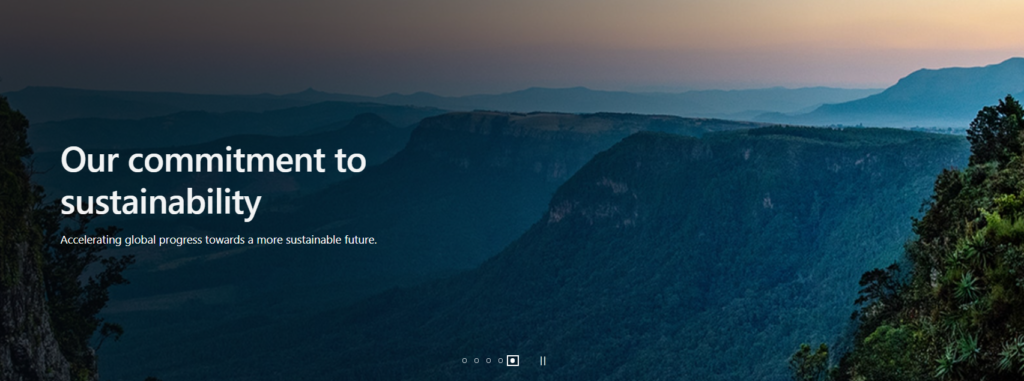Microsoft and its commitment to sustainability3 min read

This year marks the start of the new decade and also the first reporting in the ’20s for all the companies around the world. On October 19th also Microsoft published its first report of the decade (Annual Report 2020).
It is not a big deal. And nothing new. Every year all the companies issue their annual reports. But this year is different. And Microsoft’s one, more than the others, it’s worth reading.
Not only because Microsoft is amongst the world’s big 5 tech companies (Facebook, Amazon, Apple, Google, and – of course – Microsoft). But also because it keeps shaping our future and in 2020, during the pandemic crisis, we have used more than ever its products. One in particular: Microsoft Teams.
Back to Microsoft’s Annual Report, three lines are needed to understand that the tone this year is different and the “trend topics” are precisely defined:
While the start of a new decade typically brings hope, we quickly saw the world come to a near standstill in 2020, confronted by compounding crises: a public health and economic crisis, persistent issues of systemic racial injustice and inequity, and the devastating effects of climate change
Satya Nadella, Chief Executive Officer Microsoft
Annual Report 2020, Shareholder letter
Devastating effects of climate change. I would like to focus on it within Microsoft’s Annual Report.

In Microsoft’s purpose it is stated: “As we pursue our mission, we also recognize our enormous responsibility to ensure the technology we build benefits everyone on the planet, including the planet itself “.
And further: “(…) we must protect our most finite resource – the planet – by working toward a more sustainable future. Over the past year, we’ve set ambitious climate goals and outlined detailed plans to achieve them, including being carbon negative, zero waste, and water positive by 2030. We are also building a new planetary computing platform to help manage Earth’s natural systems.
Addressing the climate crisis is good for the planet and good for Microsoft. That’s why we’re innovating and empowering customers, partners, NGOs, and governments around the world with technology to help them set and achieve their own climate goals, including the creation of a $1 billion Climate Innovation Fund to accelerate innovation”.
Microsoft commitment to sustainability can be summarized as follow:
Water positive by 2030 across direct operations: reduce the water use intensity while replenishing and increasing water access in water-stressed regions where Microsoft operates.
Committing to zero waste: zero waste across the direct waste footprint by 2030. Eliminate single-use plastics in the package by 2025 and increase reuse at the data center with Circular Centers.
Building a planetary computer: preserve the Earth’s ecosystem and create a Planetary Computer to build an interconnected environmental network of data and tools.
Carbon negative by 2030. Moreover, by 2050 remove all of the carbon Microsoft has emitted since it was founded in 1975.
And the final statement: accelerating global progress toward a more sustainable future.
Sources: Microsoft website (CSR section), Microsoft Annual Report 2020 (online version)
Featured image by QuentinLGH from Pixabay






